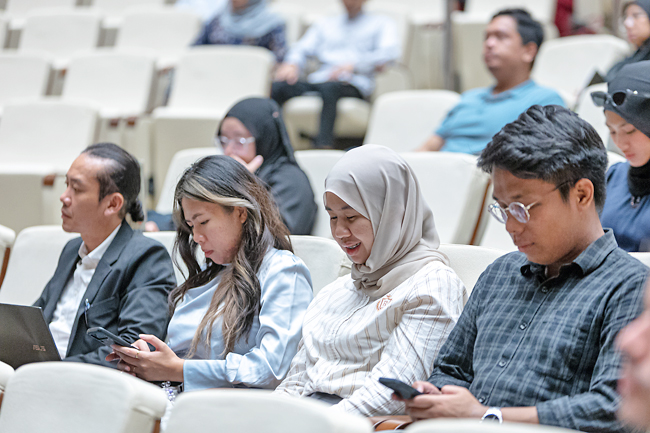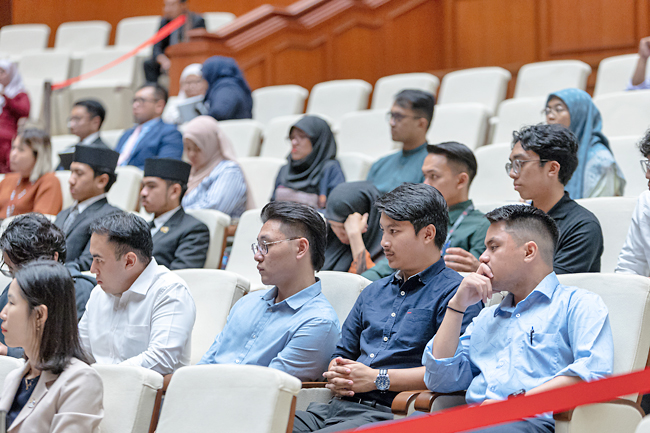In the face of unprecedented global challenges, climate change stands out as the greatest existential crisis of our time. The alarming rise in greenhouse gas emissions, and extreme weather events have far-reaching consequences of both global and domestic impacts, said Permanent Secretary (Energy) at the Prime Minister’s Office Hajah Farida binti Dato Seri Paduka Haji Talib.
She said this during the ROK-BN-ASEAN Joint Seminar: Strengthening ROK-ASEAN Solidarity through Regional Climate Action Collaboration yesterday.
She highlighted the Intergovernmental Panel on Climate Change’s Sixth Assessment Report, which warns of severe climate-induced disasters if global warming is not limited to two degrees Celsius (oC), urging efforts to restrict it to 1.5oC, emphasising the need for collective action, cooperation and a shared responsibility.
At the regional level, ASEAN is actively addressing climate change, stressing the need for coordinated and unified actions among its member states, with coordinated efforts and these among all are ASEAN Climate Change Strategic Action Plan, the ASEAN Strategy Carbon Neutrality and the ASEAN Climate Finance Strategy.
She emphasised the country has made remarkable strides in its climate change journey, with the launch of the Brunei National Climate Change Policy in 2020 that outlines the key strategies for a low carbon and climate-resilient Brunei Darussalam as well as the launch of the mandatory reporting directive.
“As we navigate challenges such as geopolitical tensions, the rapid transformation of technology, increasing cyber threats, and especially the challenges posed by climate change, it is evident that we cannot do this alone,” the permanent secretary said.
Climate action, she added, requires collaborative efforts to deliver our near-term nationally determined contributions, and to achieve our long-term shared net-zero goals. South Korea’s Korea-ASEAN Solidarity Initiative (KASI) strengthens its partnership with ASEAN in trade, economy and socio-cultural exchanges. Korea plans to support ASEAN’s carbon neutrality and green transition with a multi-year project and collaborate with the ASEAN Centre for Climate Change (ACCC).
The Korea Environment Institute’s (KEI) expertise will be invaluable to ASEAN and the ACCC, making the seminar crucial for leveraging knowledge to support ASEAN’s sustainable future.
The permanent secretary added, “I am encouraged by the diverse representation as I believe inclusive participation is important to ensure we have a holistic approach on this journey.
“I have high expectations that this seminar will yield meaningful dialogues, knowledge exchange, and the forging of new partnerships.”
She also looks forward to innovative solutions that can be implemented to mitigate the impact of climate change and safeguard the environment.
“Despite the challenges ahead, we must remain optimistic about the possibilities. Initiatives like today’s seminar show our collective will to address climate change and work towards a sustainable future. They remind us that together, we can create a more resilient, environmentally responsible, and prosperous world for generations to come,“ she said. – Lyna Mohamad





















































